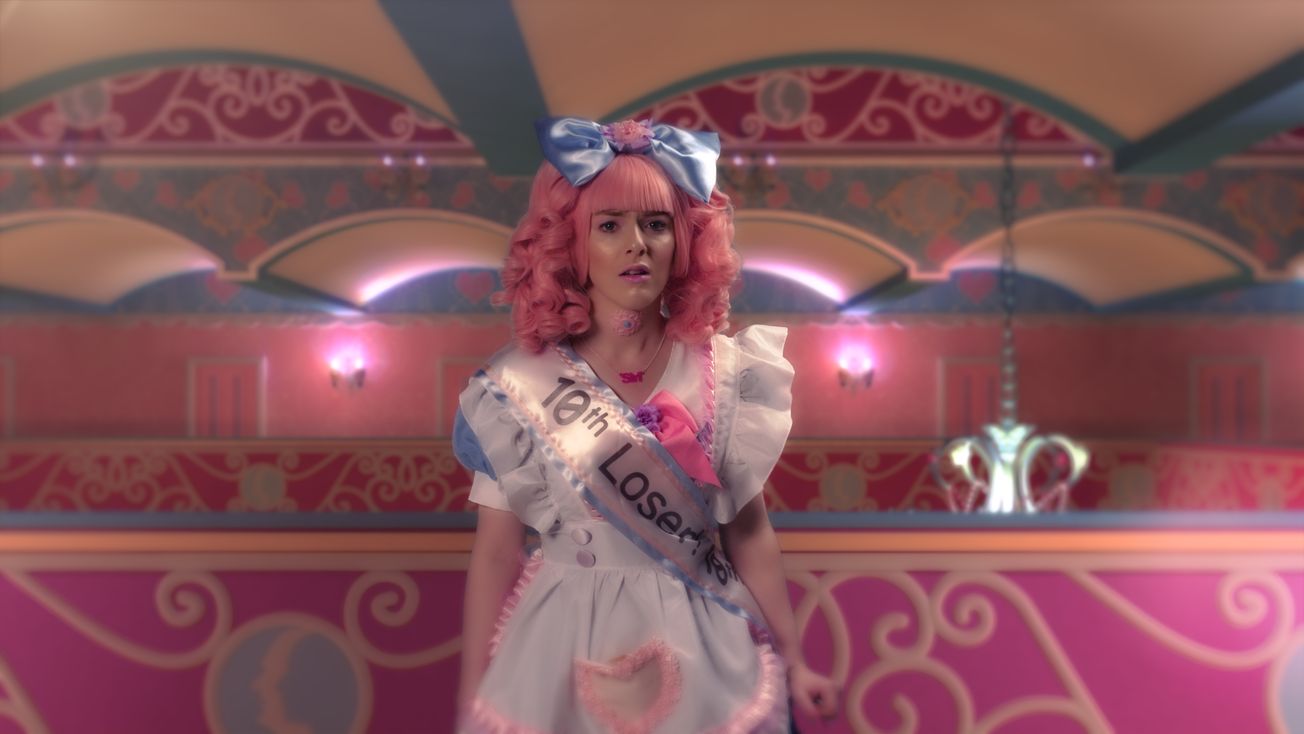By Sára Neužilová, Third Year, Theatre and Film
The multimedia creator Rachel Maclean presents an intriguing yet terrifying world in her latest film Make Me Up.
Youtube / BFI
Make Me Up's world is one where the voice of Kenneth Clark - widely known for presenting Civilisation (1969), a BBC program about Western culture - meets modern AI assistants Siri and Alexa, the new-age Stepford Wives. It is a world where violence, submission and surveillance are a normalised part of daily life. Director Maclean tackles anything and everything from social media to television, focusing on the conflicting expectations women face in the modern society. The film was created as part of 'Represent' - a series of works in 2018 inspired by the 'Representation of the Peoples Act 1918'.
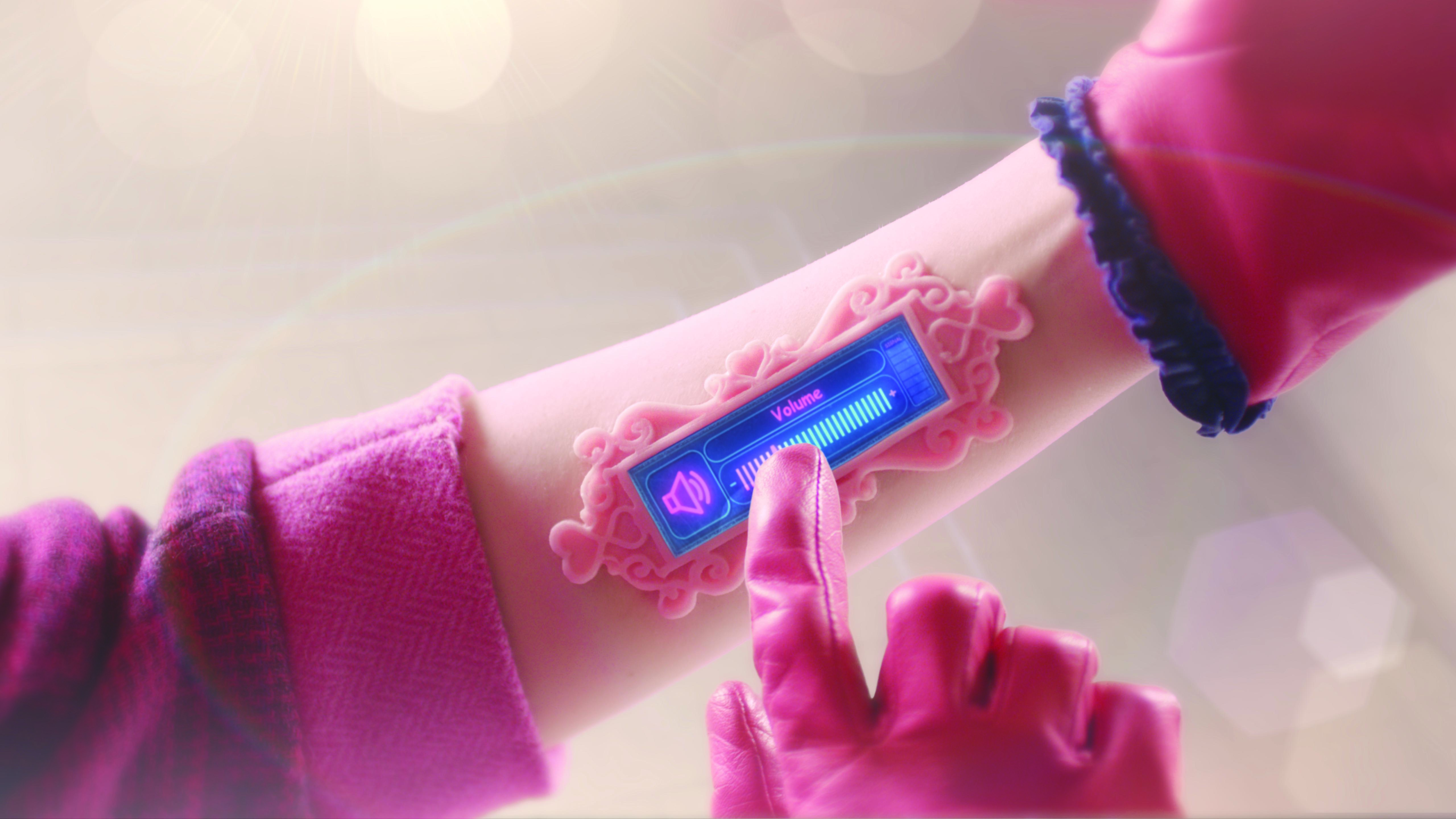
London Film Festival / Make Me Up
The audience is introduced to the bizarre world of Make Me Up through the character of Siri (Christina Gordon), who finds herself trapped in a ferocious candy dream house, that is ruled by a totalitarian diva who speaks through the voice of Kenneth Clark, created entirely from snippets from the aforementioned Civilisation. Siri meets a group of female characters and is forced by the voice of Clark to compete with them head-to-head for survival.
The tasks differ from answering "simple” questions such as 'Where will the world end?' to recreating some of the most iconic female figures in classical art, like Botticelli’s Venus or the Virgin Mary holding baby Jesus, with each portrayal suggesting a different quality a woman should have: Venus representing beauty and the Virgin Mary being a good and nurturing mother. The girl who does the poorest of the group gets “eliminated”; the one who does the best gets the privilege of having actual food for dinner that day.
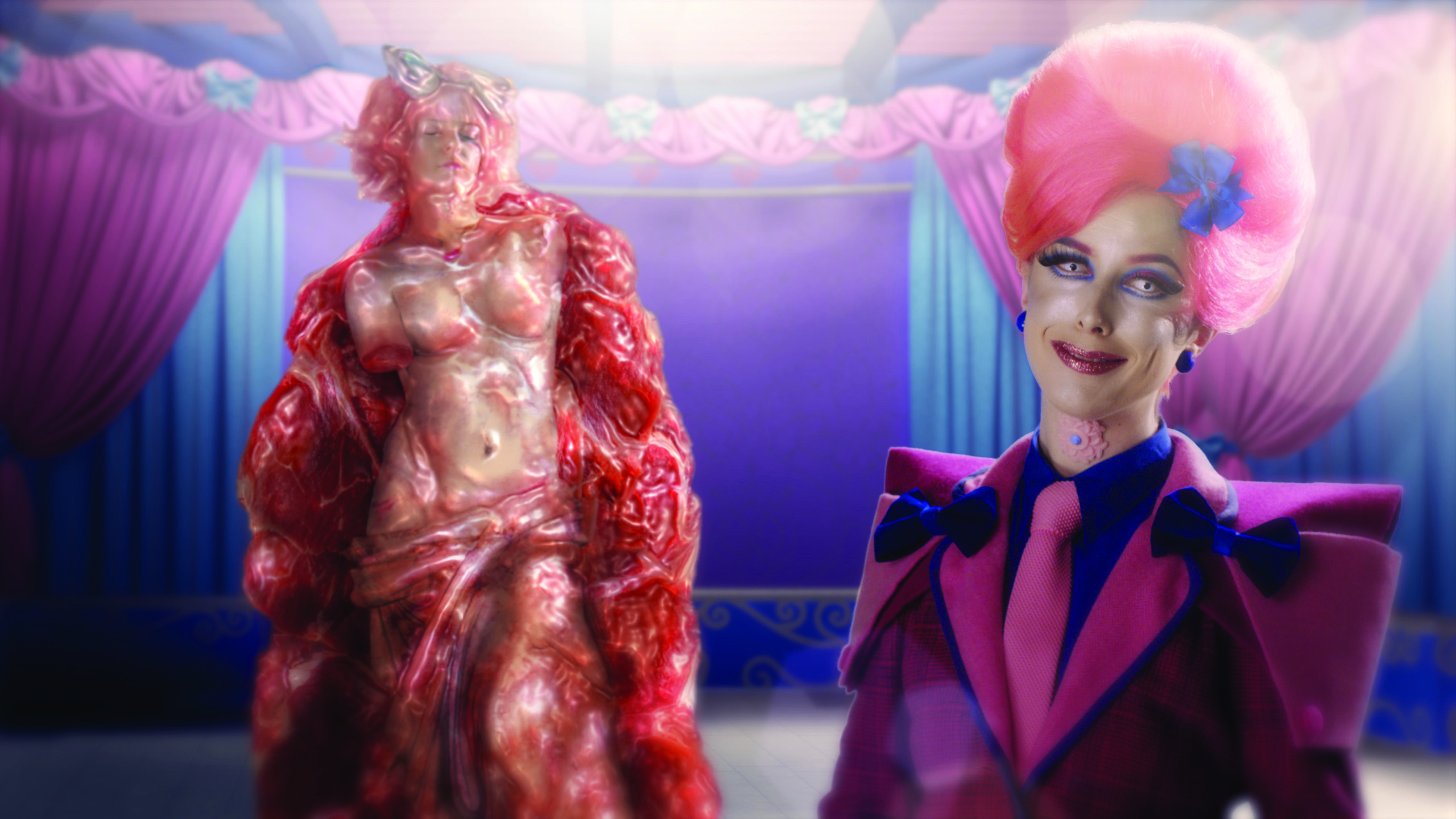
London Film Festival / Make Me Up
Every single frame of the film is laden with metaphor. Some of them are easy to decipher, like forcing the characters to starve as a means of highlighting the way in which women starve themselves to maintain the “perfect figure.” In other instances, the symbols are more intricately hidden, such as naming each female character after a historic AI - Siri, Alexa and Cortana being the most well-known ones.
As the project was partly made as a piece for the 100th anniversary of the Suffragette movement, the film highlights curious ideas of submission. The film argues that, now that women are not socially inferior and subordinate to men, the feminisation of AIs serves as an attempt by men to return the female voice to a position of subordination. Whilst this might sound rather heavy, given all the political issues Maclean tackles, the film is presented in a hugely accessible way owing to the cotton candy aesthetic.
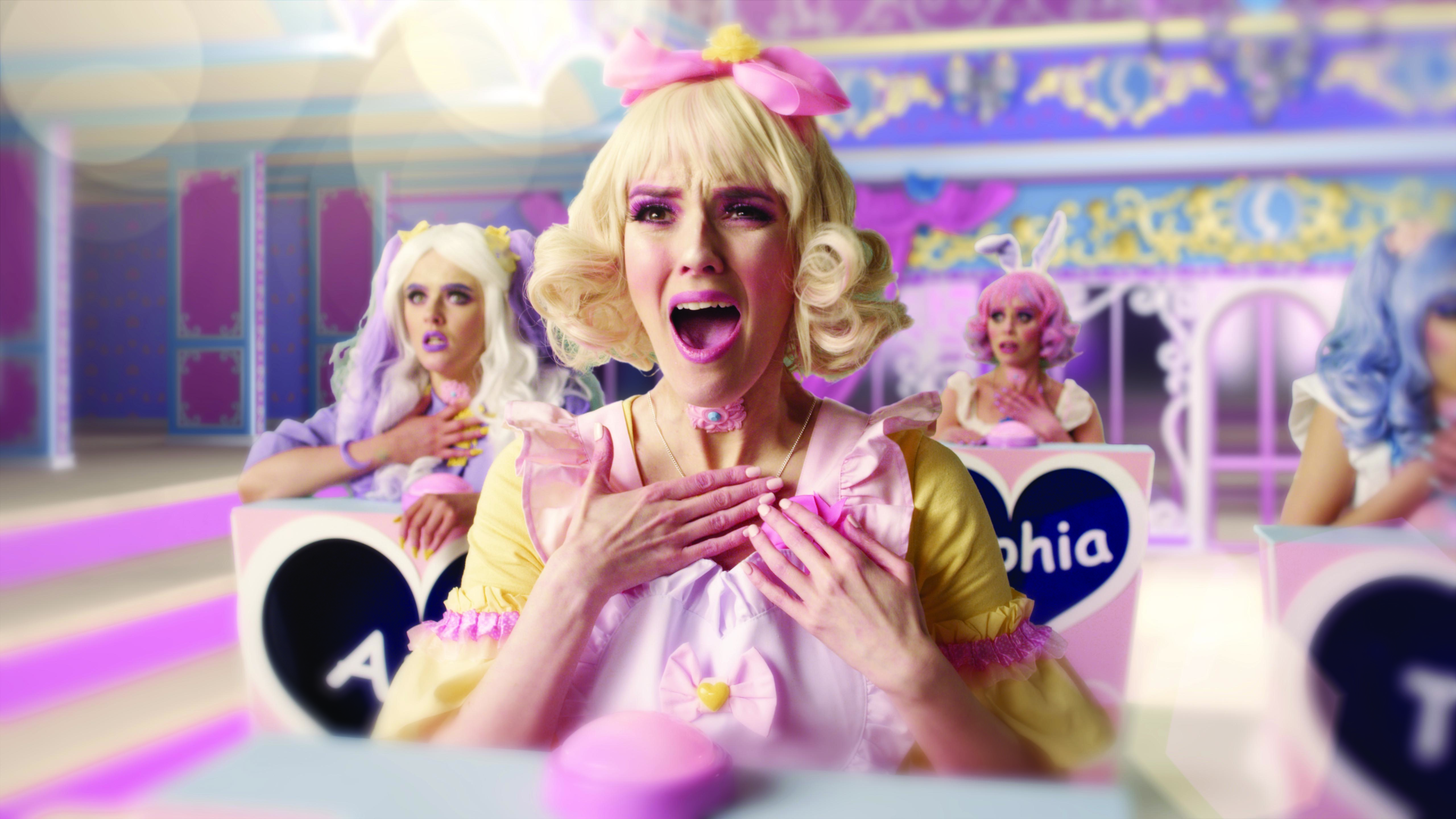
London Film Festival / Make Me Up
Maclean herself has mentioned her fascination with the power of Kawaii culture, a Japanese culture of cuteness, referring to anything and everything that is charming, vulnerable, shy and childlike - yet more expectations of what women should be. Make Me Up plays as a coming-of-age story, where the audience is strongly rooting for the girls to find their own voice and power, and like Maclean said “to have a voice, is to have power.”
As a multimedia creator, Maclean created Make Me Up as an art installation first. It was screened in galleries on a loop with people coming in and leaving whenever they felt appropriate. In the Q&A session that followed the Bristol screening at Watershed on 25 October, Maclean admitted that despite the piece now being presented as a linear film the message remains the same, to encourage girls to question the expectations society keeps throwing at them and to challenge said expectations.
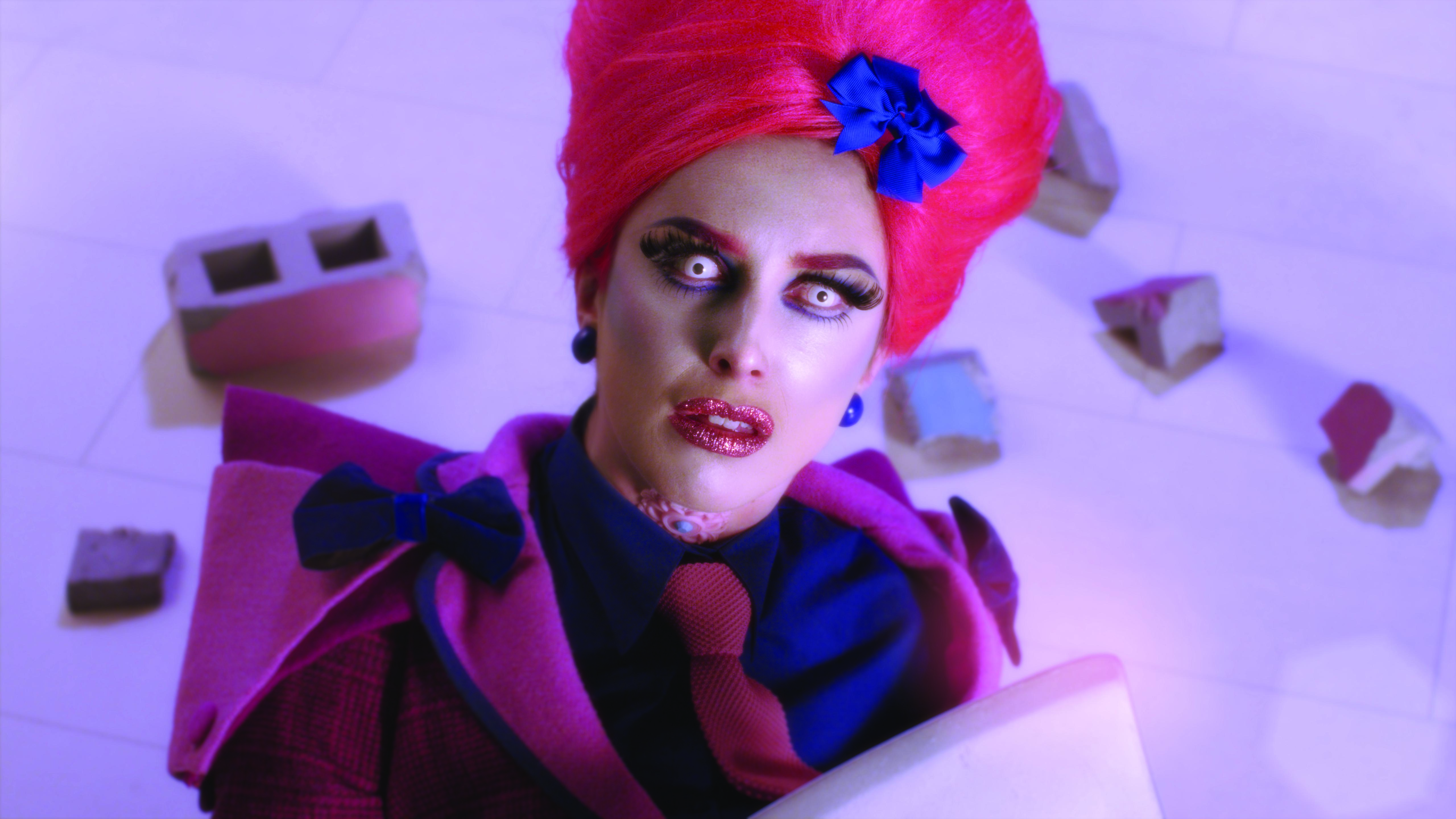
London Film Festival / Make Me Up
If you have not had the chance to catch this revolutionary striking satire in cinemas or in galleries, you can watch it on BBC Four on 4 November at 10PM. Irrespective of gender, binary or non-binary, the film is a universally profound story about finding your voice and standing up for yourself.
Featured Image: London Film Festival / Make Me Up
Will you think twice the next time you ask Siri or Alexa to do your bidding?
Facebook // Epigram Film & TV // Twitter

